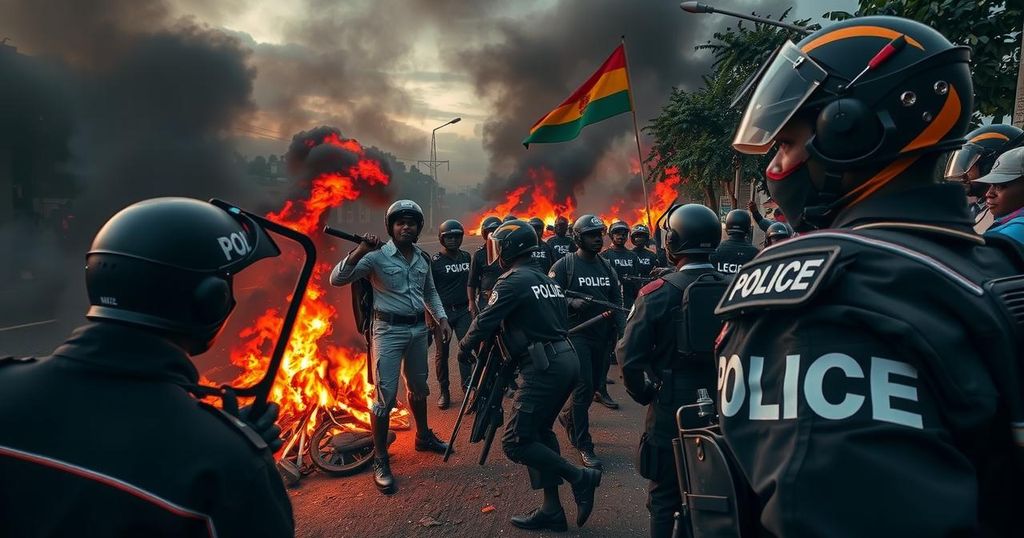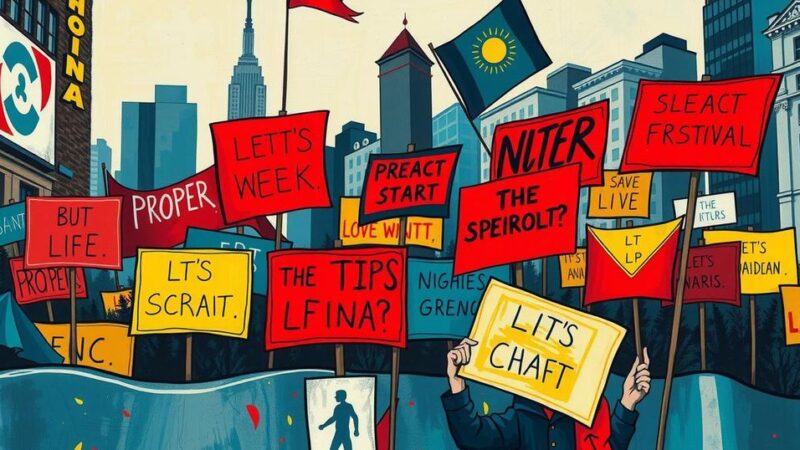Mozambique’s recent elections have ignited major protests against the ruling Frelimo party, resulting in violent crackdowns by police with reports of over 50 deaths. Allegations of electoral fraud led to widespread unrest across cities, particularly in Maputo, prompting severe measures from law enforcement and the restriction of internet access. The political climate is marked by growing opposition dissent and calls for accountability in governance.
As unrest continues in Mozambique following the contentious elections held on October 9, 2024, the nation has witnessed significant protests that have resulted in violent confrontations with police. The ruling party, Frelimo, which has held power for nearly five decades, was declared the winner by Daniel Chapo. This declaration has led to widespread allegations of electoral fraud, prompting mass protests across major cities, especially in the capital, Maputo. In response to rising tensions, security forces have deployed heavy measures, including tear gas and rubber bullets, against the protesters. Reports indicate that the death toll varies, with human rights organizations claiming over 50 fatalities as violence escalates, leading to calls for increased military presence. Furthermore, Internet services have been restricted, and a state of emergency prompted South Africa to close its border with Mozambique amid concerns over spillover violence. While political tensions escalate, the opposition remains determined to challenge the elections and demand accountability from the government, reflecting a deep-seated dissatisfaction with the status quo.
Mozambique has been governed by the Front for the Liberation of Mozambique (Frelimo) since its independence in 1975. The country recently held its elections amid concerns about electoral integrity. The October 9 elections were marred by reports of irregularities; opposition parties accused the ruling government of ballot manipulation and voter coercion. The discontent has been exacerbated by the assassination of key opposition figures, heightening fears of state violence and further intensifying calls for reform. The aftermath of the election marks a critical juncture in a country still battling the legacies of civil war and ongoing security challenges.
In summary, the aftermath of the October 2024 elections in Mozambique has catalyzed significant unrest, highlighting deep-rooted political frustrations among the populace. As the ruling Frelimo party consolidates its grip on power amid allegations of electoral fraud, protests have escalated, prompting violent crackdowns by law enforcement. The current situation stresses the urgent need for dialogue and accountability in Mozambique, particularly as opposition leaders call for national strikes and increased public demonstrations to challenge the legitimacy of the recent election results.
Original Source: apnews.com






